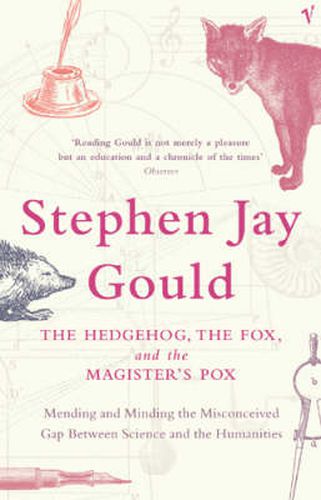Readings Newsletter
Become a Readings Member to make your shopping experience even easier.
Sign in or sign up for free!
You’re not far away from qualifying for FREE standard shipping within Australia
You’ve qualified for FREE standard shipping within Australia
The cart is loading…






Completed shortly before his death, this is the last work of science from the most celebrated popular science writer in the world. In characteristic form, Gould weaves the ideas of some of Western society’s greatest thinkers, from Bacon to Galileo to E. O. Wilson, with the uncelebrated ideas of lesser-known yet pivotal intellectuals. He uses their ides to undo an assumption born in the seventeenth century and continuing to this day, that science and the humanities stand in opposition. Gould uses the metaphor of the hedgehog - who goes after one thing at a measured pace, systematically investigating all; the fox - skilled at many things, intuitive and fast; and the magister’s pox - a censure from the Catholic Church involved in Galileo’s downfall: to illustrate the different ways of responding to knowledge - in a scientific, humanistic or fearful way. He argues that in fact each would benefit by borrowing from the other.
$9.00 standard shipping within Australia
FREE standard shipping within Australia for orders over $100.00
Express & International shipping calculated at checkout
Completed shortly before his death, this is the last work of science from the most celebrated popular science writer in the world. In characteristic form, Gould weaves the ideas of some of Western society’s greatest thinkers, from Bacon to Galileo to E. O. Wilson, with the uncelebrated ideas of lesser-known yet pivotal intellectuals. He uses their ides to undo an assumption born in the seventeenth century and continuing to this day, that science and the humanities stand in opposition. Gould uses the metaphor of the hedgehog - who goes after one thing at a measured pace, systematically investigating all; the fox - skilled at many things, intuitive and fast; and the magister’s pox - a censure from the Catholic Church involved in Galileo’s downfall: to illustrate the different ways of responding to knowledge - in a scientific, humanistic or fearful way. He argues that in fact each would benefit by borrowing from the other.